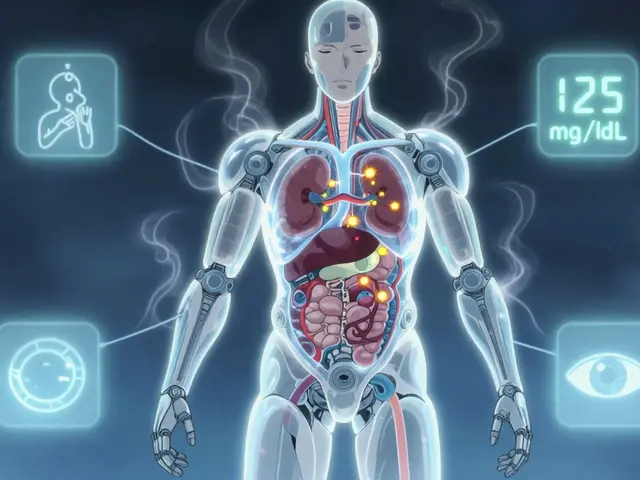Enzyme deficiency: causes, signs, tests, and simple fixes
Enzyme deficiency means your body lacks a protein that speeds up chemical reactions. It can affect digestion, blood cells, or other organs. Symptoms vary but common signs include bloating, gas, loose stools, fatigue, unexpected weight loss, jaundice, or sudden dark urine. If you notice these, track what you eat and how you feel.
Small, clear steps help. Start by noting which foods trigger problems. Try a short lactose-free trial if milk bothers you; many people with lactase deficiency feel better within days. For frequent greasy stools or trouble gaining weight, ask your doctor about pancreatic enzyme insufficiency. A simple stool test for fecal elastase or a blood test can point to the problem.
How doctors diagnose enzyme problems
Doctors use targeted tests, not guesswork. For suspected lactose intolerance they often order a hydrogen breath test or try a supervised elimination. For pancreatic issues they measure fecal elastase and may use imaging or refer you to a gastroenterologist. For genetic enzyme disorders like G6PD deficiency, a blood test checks enzyme activity. Bring a short food and symptom diary to your appointment to speed up diagnosis.
Practical treatments you can try
Treatment depends on the enzyme and how severe the deficiency is. For lactase deficiency, use lactose-free milk, hard cheeses, or lactase pills before dairy. For pancreatic insufficiency, doctors prescribe pancreatic enzyme replacement like pancrelipase taken with meals. These replace missing enzymes and reduce bloating and fatty stools. For genetic enzyme disorders, the main approach is avoiding triggers. For G6PD deficiency that means avoiding certain drugs, infections, and fava beans; your doctor will give a clear list.
Lifestyle matters. Eat smaller, regular meals and choose low-fat options if you have pancreatic issues. Consider supplements only after checking with a clinician; some over-the-counter enzyme blends help mild digestion problems but may not treat serious deficiencies. If you start a pill like pancrelipase, follow dosing instructions closely—taking it with food matters.
When to get urgent help? Go to an emergency room for severe abdominal pain, high fever, persistent vomiting, signs of dehydration, sudden jaundice, or fainting. For signs of anemia or rapid dark urine seek immediate care—those can mean red blood cell breakdown in conditions like G6PD deficiency.
Children and older adults show enzyme problems differently. Babies with congenital enzyme defects may fail to thrive and need specialist care. Older adults often develop milder enzyme loss like lower lactase. If tests are unclear, a dietitian can design a safe eating plan and recommend enzyme products or vitamin checks. Keep a medication list; some drugs interfere with enzymes or trigger reactions in genetic conditions. Carry a medical alert card if you have a diagnosed genetic enzyme deficiency so providers know what to avoid quickly.
Want to learn more? Ask your doctor for specific tests and treatment options. A clear diagnosis makes management straightforward and lets you return to normal eating and daily life. Tracking symptoms, using the right enzyme support, and avoiding known triggers solves most cases.






